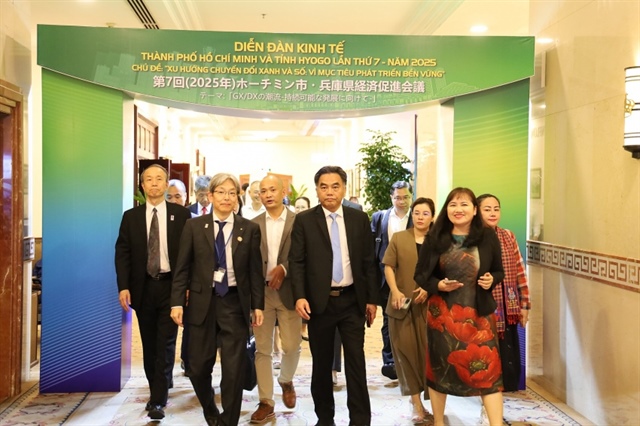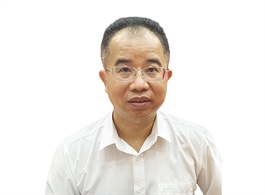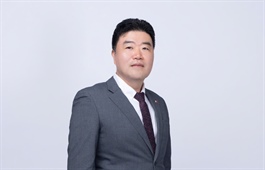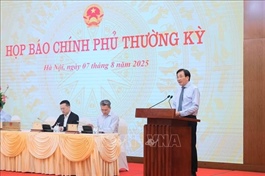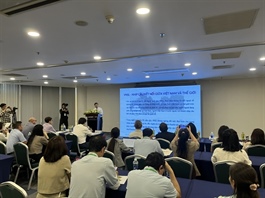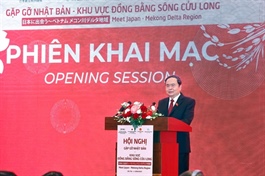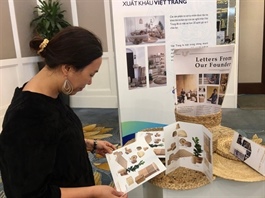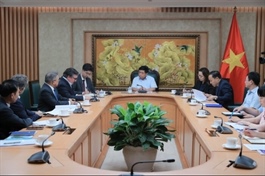Ho Chi Minh City - Hyogo Economic Forum promotes green and digital cooperation
Ho Chi Minh City - Hyogo Economic Forum promotes green and digital cooperation
Green and digital transformation for sustainable development was the central theme of the 7th Ho Chi Minh City - Hyogo Economic Forum, held in Ho Chi Minh City on August 5.
|
According to Nguyen Loc Ha, Vice Chairman of Ho Chi Minh City People's Committee, the partnership between Ho Chi Minh City and Japan's Hyogo Prefecture, established in 2007, has become a model of sustainable and effective local-level cooperation.
“This collaboration has significantly contributed to the comprehensive strategic partnership between Vietnam and Japan,” Ha stated.
Ha emphasised that digital and green transformation is now a strategic priority for Ho Chi Minh City, an imperative that will serve as a breakthrough driver for rapid and sustainable economic growth in the new era.
“The city has set clear targets: a 10 per cent reduction in greenhouse gas emissions by 2030 and net-zero emissions by 2050,” Ha stated.
Ho Chi Minh City has expanded in terms of area, population, and development potential, becoming the biggest economic hub in the country.
“Looking ahead, the city aims to become a leading regional and international hub for economy, finance, services, trade, logistics, high-tech industry, and marine tourism. The key pillars for this vision are digital transformation, green development, and innovation,” Ha said.
In this expanded development space, the relationship between Ho Chi Minh City and Hyogo Prefecture is expected to flourish, especially in forward-looking sectors such as the digital economy, green economy, circular economy, economic knowledge, renewable energy, and industrial upgrading.
Hattori Yohei, Vice Governor of Hyogo Prefecture, highlighted that since 2017, the Ho Chi Minh City–Hyogo Economic Forum has been held alternately in both localities, providing an effective platform for exploring opportunities and deepening bilateral cooperation.
He stressed that human resource development remains a central focus of the partnership.
"Hyogo Prefecture, a pioneer in fostering a multicultural society, is developing a certification system for companies employing foreign workers. This initiative helps foreign employees feel secure living and working in Japan. Vietnamese workers have the opportunity to develop their careers in Hyogo, and upon returning home, they can continue working for Hyogo-based companies operating in Vietnam, creating a cycle of sustainable cooperation," he explained.
Hyogo enterprises are also rapidly adapting in response to demographic challenges. Both sides, he said, can leverage their respective strengths to enhance collaboration in economy, security, and people-to-people exchanges.
Ono Masuo, Consul General of Japan in Ho Chi Minh City, reaffirmed the importance of the forum as a platform for two-way economic dialogue, where government authorities and businesses from both sides can exchange information and build connections.
“Today's Ho Chi Minh City has grown into Vietnam's largest economic metropolis and a highly attractive investment destination for Japanese enterprises. Japan sees great potential in Vietnam's rapidly growing pool of high-quality human resources,” Masuo said.
Moreover, the internationalisation of Kobe Airport this year opens the door to potential commercial flights between Kobe and Vietnam, which will further boost economic and personnel exchanges between the two localities,” said Masuo.
Pham Binh An, deputy director of Ho Chi Minh City Institute for Development Studies, stressed that green transition is no longer optional, it is now the only viable path towards sustainable development.
“The city is shifting its growth model towards a green economy, circular economy, and digital economy, integrating socioeconomic development with environmental protection,” he stated.
Key priority sectors for green transition include energy, industry, transportation, urban infrastructure, commerce and services, and agriculture. In parallel, the city will restructure existing industrial zones into eco-industrial parks with circular principles, while promoting high-tech manufacturing to reduce energy consumption. Public infrastructure will also be upgraded with an emphasis on mass transit systems, green building initiatives, and high-tech environmental treatment projects.
“With strong capabilities in industry, construction, and technological innovation, Hyogo-based enterprises, as well as those across Japan, have abundant opportunities to invest and collaborate, thereby elevating the bilateral partnership to a more substantive and effective level,” An concluded.
- 10:48 09/08/2025


